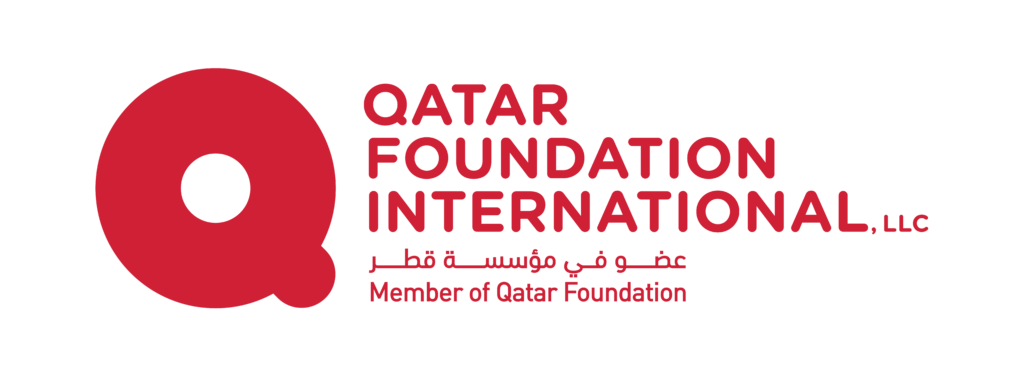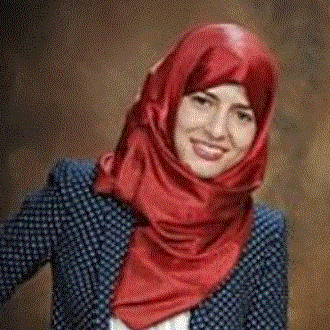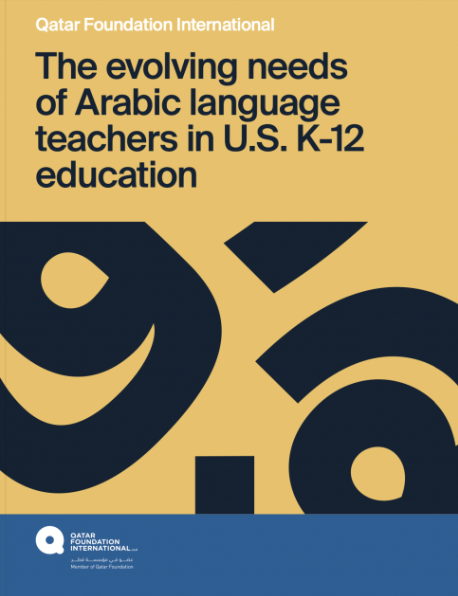Teachers of Arabic in the U.S.
The Initiative for Multilingual Studies is investigating the professional identities of K-12 Arabic language teachers in the U.S. and their critical language awareness of Arabic as a global language with many varieties. The study is funded by the Qatar Foundation International. It began in January of 2022 and will end in July of 2023.
The research team members are Dr. Lourdes Ortega and Dr. Hina Ashraf (Principal Investigators) and doctoral students Rima Elabdali and Saurav Goswami. The findings will contribute to supporting the professional development of primary and secondary teachers of Arabic in the United States.





Grant Publications
The evolving needs of Arabic language teachers in U.S. K-12 education (white paper)
The team at the Initiative for Multilingual Studies synthesized the existing literature on Arabic language teachers and explored their evolving needs in U.S. K-12 education. You can read and download the paper here.

OASIS summaries of 15 Arabic Studies
The team at the Initiative for Multilingual Studies identified and summarized 15 peer-reviewed studies that focus on Arabic language teaching. The 15 accessible summaries can be useful tools for teachers to learn about current research on Arabic language teaching and can be used for teacher professional development. You can read and download the summaries from the list below. Visit OASIS database to access more research summaries in language studies.

- Translanguaging in support of MSA learning: The case of an Arabic community/heritage school (Abourehab & Azaz, 2020)
- Using a spoken variety alongside MSA fosters pragmatic development in L2 Arabic study abroad (Al Masaeed, 2022)
- Integrating Arabic dialects in classroom instruction fosters L2 sociolinguistic competence (Nassif & Al Masaeed, 2020)
- How do Emirati teachers of Arabic address multilingualism and self-regulation in secondary classrooms? (Tang & Calafato, 2021)
- Language contact during a semester of study abroad drives Arabic oral competence (Trentman, 2017)
- Teacher resistance to written translanguaging in storybooks for Arabic-English bilingual children (Al-Bataineh & Gallagher, 2021)
- What can an exceptionally good nonnative speaker of Arabic tell us about the critical period? (Ioup et al., 1994)
- Advanced oral proficiency in L2 Arabic: Successes and challenges of a nonnative-speaking Arabic teacher (Samimy, 2008)
- Using an Arabic language corpus to promote learner self-correction (Zaki, 2021)
- Teaching with use of the L1 can be more effective than L2-only teaching in beginning-level French and Arabic instruction (Brown, 2021)
- Attitudes towards different Arabic dialects and their speakers matter in interdialectal communication in the U.S. (Chakrani, 2015)
- Students’ views on Arabic dialect learning after two months of intensive study abroad (Shiri, 2013)
- Bilingual pedagogical strategies used by three teachers with bilingual Arabic-Hebrew kindergartners (Schwartz & Asli, 2014)
- Translanguaging in Arabic and English: Insights from two Emirati university students (Palfreyman & Al-Bataineh, 2018)
- Teachers’ experiences while teaching Arabic in K-12 schools in Israel (Saada & Gross, 2019)
